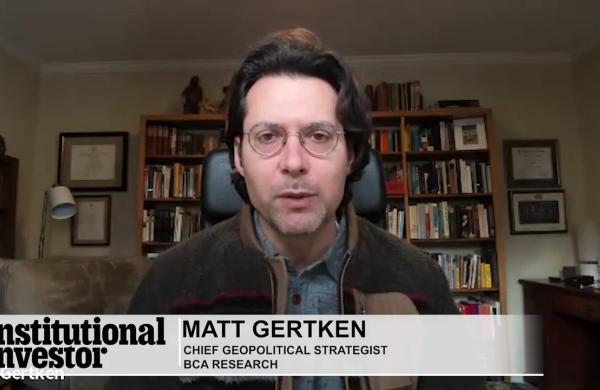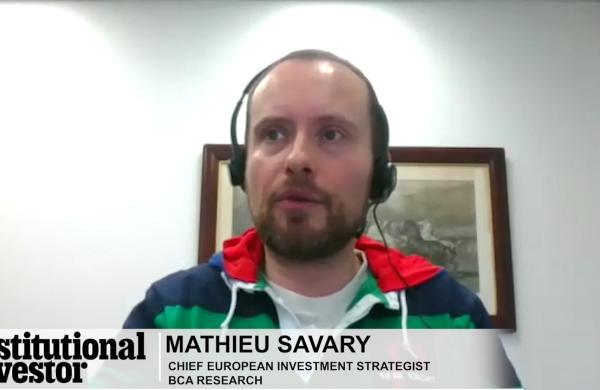Brazil’s once soaring stock market began a descent in early June, a victim of the U.S.-sparked credit crisis that has grounded equity markets around the world. The nation’s benchmark Bolsa de Mercadorias & Futuros Bovespa index, which gained 38.9 percent in the 12 months ended May 31, has since fallen 25.3 percent, through mid-August.
However, many strategists believe the downturn, though severe, will be short-lived. Roberto Attuch, co-director of Latin American equity research at Credit Suisse in São Paulo, predicts that the index, which stood at 54,244.03 on August 15, will hit 86,000 by the end of the year, for an annual gain of 34.6 percent.
“We do a bottom-up analysis of all the companies under coverage, and that’s the number we get,” Attuch says. “Brazil is benefiting from significantly higher commodity prices, and domestic demand is also strong.”
Given the dismal growth rates and market performance of many developed economies, Brazil’s astounding resilience in the first ten months of the credit crisis and consensus opinion that a rebound is in the offing, investors are clamoring for information and insight into Latin America’s biggest economy. The firm that does the best job of providing that information, investors say, is UBS Pactual, which leads the 2008 All-Brazil Research Team, Institutional Investor’s fifth annual ranking of the nation’s best analysts.
UBS Pactual places first for a third straight year, with 13 total team positions, while Credit Suisse holds steady in second, with 11. Santander is the biggest gainer, skyrocketing from No. 8 to No. 3; the firm nabs six positions and bumps Itaú Securities, which tied for third place last year, down a notch to fourth; Itaú earns five team positions. Last year’s other third-place firm, Merrill Lynch, ties for fifth with JPMorgan and Morgan Stanley, neither of which ranked last year. The fifth-place firms each have three positions. Results are based on responses from representatives of nearly 200 institutions, Brazilian and foreign, managing some $92.7 billion in Brazilian equities and $114.5 billion in Brazilian debt.
The credit crisis has had a chilling effect on Brazil’s formerly red-hot initial public offering market, with more than 20 companies canceling or postponing IPOs as of last month. That is a dramatic change from 2007, when a record 65 companies, worth 51.3 billion reais ($31.9 billion), came to market, according to the National Association of Investment Banks, a trade organization for Brazil’s securities industry.
“The typical buyers of the small- to midcap IPOs were the hedge funds and the alpha-hungry investors,” says Pedro Martins Jr., Merrill Lynch’s São Paulo–based director of Brazilian research and the top-ranked analyst in Equity Strategy. Those investors, particularly the ones from overseas, have become “far less active” because of the credit crunch, he says. Foreign investors bought 73.8 percent of Brazil’s IPOs last year, according to the NAIB, with U.S. investors accounting for 61.1 percent of that total and Europeans accounting for 35.3 percent.
Although Brazil’s IPO market has stalled, the country’s greatly expanded universe of newly public companies means that “everyone is working much more,” says Pedro Batista, director of Brazilian equity research for UBS Pactual in São Paulo. Batista, who is ranked No. 2 in both Electric & Other Utilities and Equity Strategy, says the sectors that have grown the fastest are financial services — 19 companies, compared with six one year ago — and real estate, with 15 companies, up from nine.
Homebuilding is booming because interest rates remain low by historical standards, even as the Banco Central do Brasil has been raising its benchmark Selic rate recently in an attempt to curb inflation; the rate stands at 13.0 percent, up 1.75 percentage points since April.
“Banks are now granting longer-term mortgage loans of 20 and 30 years,” Batista says. A few years ago “builders were building more apartments for the high end, but in the past year they’ve started building homes for low-income people, and that market is growing a lot.”
Batista is in the process of hiring three more analysts, for a total of 33, and his team tracks 122 stocks, up from 89 a year ago.
Other firms are also expanding their research departments to keep pace with demand from investors and the growing number of companies to cover. Credit Suisse added six analysts in the past year, for a total of 21, and increased its coverage universe from 85 companies to 107, according to Attuch (who is No. 2 in Banking & Financial Services) and co-director of research Emerson Leite (No. 1 in Chemicals & Oil).
Cristián Moreno, the Chilean-born, New York–based head of equity research for Santander, expanded his firm’s coverage of Brazilian equities from 33 to 90 and increased the number of analysts in the firm’s São Paulo office from 15 to 20. “We have been strengthening the team to adapt to the new reality of a larger market in Brazil,” he says. The Brazil-based analysts are under the direction of one of the firm’s new hires, Marcelo Audi (No. 3 in Equity Strategy), who joined Santander in January 2007 from investment advisory firm Quadrante Investimentos.
Itaú added 16 analysts, for a total of 35, and expanded its coverage from 70 to 129 companies, according to Eduardo Sancovsky, head of equities research and sales in São Paulo. Among the new hires is Luciano Campos, a Brazil native and former health care analyst at Bear, Stearns & Co. in New York. Campos joined Itaú in May as the firm’s first health care analyst and will soon start covering education companies — “a brand new sector, with universities going public,” Sancovsky says.
Merrill Lynch analysts now cover 87 Brazilian companies, twice the number they covered just two years ago. Martins notes that when he joined the firm from JPMorgan in 2005, Merrill’s Brazil research department had only three analysts. Now it has 20. “Four years ago it would have been nonsense to have a health care analyst, but today the sector merits full coverage. That has also happened with the homebuilders,” he says.
Other sectors will likely soon require their own analysts too, because the IPO market “is not dead — it’s just taking a rest,” declares Marcelo Kayath, head of equities sales trading at Credit Suisse. “Brazil is still in good shape.”





